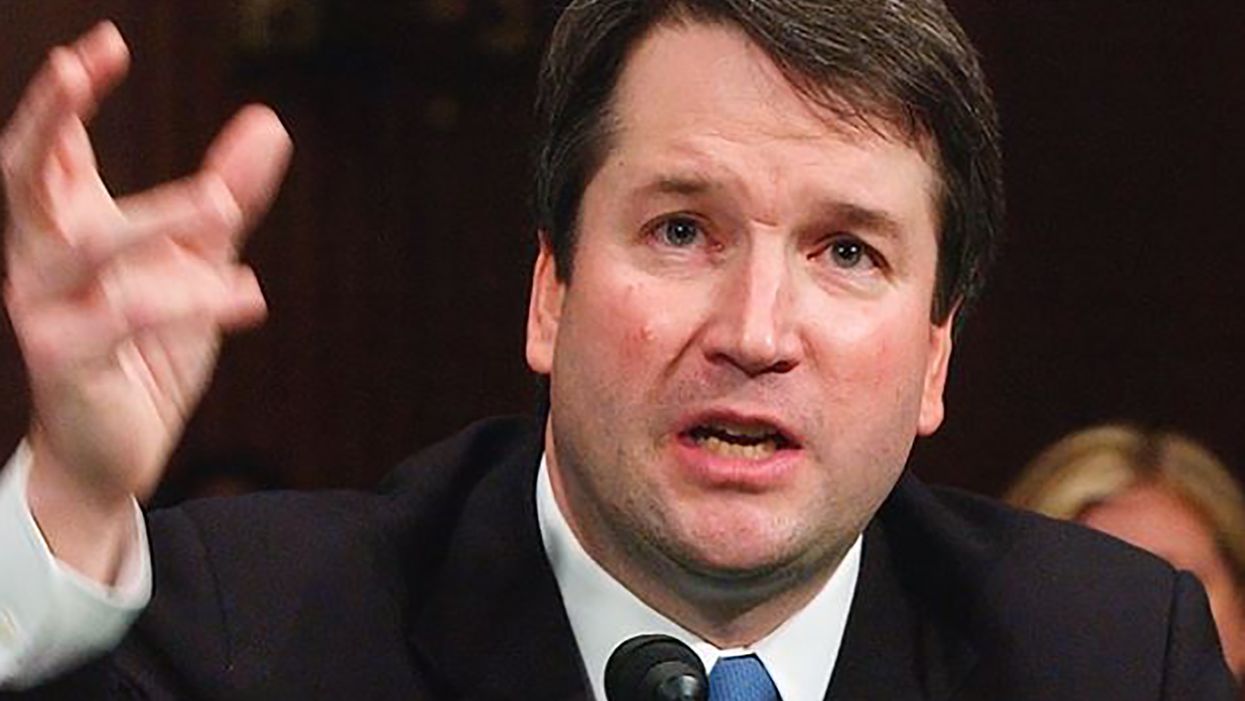Law professor explains what Brett Kavanaugh gets painfully wrong about Supreme Court history and Roe v. Wade


When the U.S. Supreme Court, on December 1, began hearing oral arguments in Dobbs v. Jackson Women’s Health Organization — the case that could result in Roe v. Wade being overturned — legal experts were paying close attention to what Justice Brett Kavanaugh had to say. Kavanaugh, who appears likely to vote in favor of overturning Roe, pointed out that the High Court reversed major decisions in the past. But University of Baltimore law professor Kimberly Wehle, in an op-ed published by Politico on December 14, stresses that Kavanaugh is missing an important point about those past reversals.
Kavanaugh told his colleagues, “If you think about some of the most important cases, the most consequential cases in this Court’s history, there’s a string of them where the cases overruled precedent.”
Kavanaugh specifically mentioned 1954’s Brown v. the Board of Education, an anti-segregation ruling that reversed the “separate but equal” doctrine of 1896’s Plessy v. Ferguson. While Plessy upheld segregation as constitutional, Brown struck down “separate but equal” as unconstitutional.
“Although it’s true the Court has indeed reversed itself on occasion, the practice is vanishingly rare,” Wehle explains. “Kavanaugh listed a number of those cases — some of which, like Brown v. Board of Education and Miranda v. Arizona, are familiar even to non-lawyers. But in his survey of Court history, he neglected to point out a notable fact those cases have in common. In those small number of overrulings, the Court has almost always expanded constitutional rights, not constrained them.”
Roe v. Wade, like 1965’s Griswold v. Connecticut, 1969’s Stanley v. Georgia and 2003’s Lawrence v. Texas, is an example of what legal scholars call a “right to privacy” decision. And critics of Roe, as Wehle notes in her Politico op-ed, don’t believe that the “right to privacy” exists in the U.S. Constitution.
“To be sure, conservative critics would argue that the right to abortion was built on a fiction in the first place, as nothing in the Constitution explicitly protects the right to privacy, let alone the right to terminate a pregnancy,” Wehle writes. “But that argument falls apart when one considers that justices have identified so-called unenumerated rights within the 14th Amendment’s due process clause on a number of occasions, using them to block the government’s ability to dictate individual choices about marriage partners, intimate sexual contact, contraception and the rearing and education of one’s children.”
One High Court justice who is certain to vote against overturning Roe is Justice Sonia Sotomayor. The Barack Obama appointee has emphasized the importance of stare decisis or respect for precedent in her Dobbs arguments.
Wehle notes, “Stare decisis…. is Latin for ‘to stand by things decided.’ Although not in the actual Constitution, the Court has historically abided by the assumption that, absent some special justification, its prior rulings stand. The goal of the doctrine is to foster stability and respect for the rule of law. The Court has identified a grab bag of criteria in considering whether to abandon prior precedent, including whether the decision was well-reasoned or ‘egregiously wrong,’ whether its replacement is workable and pragmatic, whether the facts on the ground have changed in the intervening years, whether the precedent conflicts with other Supreme Court rulings, and whether overruling it would injure individuals or organizations who relied on the decision, including society as a whole.”
Wehle concludes her op-ed by stressing that overturning Roe would be radically different from overturning Plessy with Brown.
“No doubt Kavanaugh was correct to suggest that, had the Court not overruled precedents like Plessy v. Ferguson, which for its part blessed racially ‘separate but equal’ facilities, ‘the country would be a much different place,’” Wehle writes. “If he and four other justices join together to overrule Roe come June 2022, this country will indeed look vastly different when it comes to the individual constitutional rights of women against government intrusion. And that movement would be backward rather than forward — a rejection of a hallmark of America’s constitutional jurisprudence and its societal strength.”